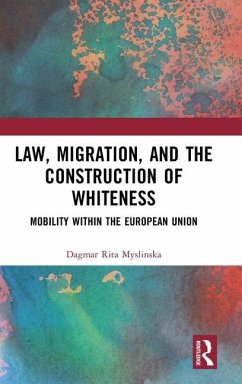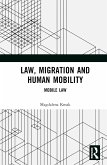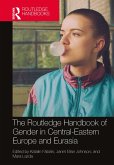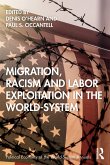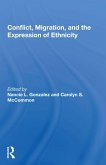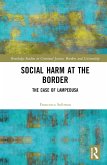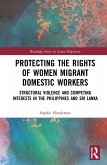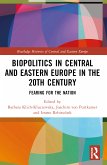This book addresses the hidden dynamics of race within the European Union.
Brexit supporters' frequent targeting of European Union (EU) movers, especially those from Central and Eastern Europe, has been popularly assumed as at odds with the EU project's foundations based on equality and inclusion. This book dispels that notion. By interrogating the history, wording, omissions, assumptions and applications of laws, policies and discourses pertinent to mobility and equality, the argument developed throughout the book is that the parameters of CEE nationals' status within the EU have been closely circumscribed, in line with the entrenched historical positioning of the west as superior to the east. Engaging current legal, economic, political and moral issues--against the backdrop of Brexit and contestations over EU integration and globalisation--this work opens avenues of thought to better understand law's role in producing and sustaining social stratifications. Europe is a postcolonial space, as this book demonstrates. By addressing fractures within the construct of whiteness that are based on ethnicity, class and migrant status, the book also provides a theoretically nuanced, and politically useful, understanding of contemporary European racisms.
This book will appeal to scholars, students and others interested in migration, EU integration and EU citizenship, equality law, race and ethnicity, social policy, and postcolonialism.
Brexit supporters' frequent targeting of European Union (EU) movers, especially those from Central and Eastern Europe, has been popularly assumed as at odds with the EU project's foundations based on equality and inclusion. This book dispels that notion. By interrogating the history, wording, omissions, assumptions and applications of laws, policies and discourses pertinent to mobility and equality, the argument developed throughout the book is that the parameters of CEE nationals' status within the EU have been closely circumscribed, in line with the entrenched historical positioning of the west as superior to the east. Engaging current legal, economic, political and moral issues--against the backdrop of Brexit and contestations over EU integration and globalisation--this work opens avenues of thought to better understand law's role in producing and sustaining social stratifications. Europe is a postcolonial space, as this book demonstrates. By addressing fractures within the construct of whiteness that are based on ethnicity, class and migrant status, the book also provides a theoretically nuanced, and politically useful, understanding of contemporary European racisms.
This book will appeal to scholars, students and others interested in migration, EU integration and EU citizenship, equality law, race and ethnicity, social policy, and postcolonialism.
"A terrific contribution to the critical study of whiteness transnationally, this lively, broadly learned, and methodologically sophisticated work shows that the 'enlargement' of the European Union only expanded political rights and economic opportunities for central and eastern Europeans within stark and contested limits. Assumptions regarding what made a united Europe cohere and of what nations and institutions should lead it continued to aggrandize Europe's north and west even as the lesser whiteness of those to the east was nominally acknowledged." David Roediger, University of Kansas, USA
"In this much needed account, Dagmar Myslinska explores the interconnectedness between the legal environment, migration and evolving ideas about whiteness in the European Union. Drawing on detailed research, it provides an important insight into the changing dynamics of mobility, migration and bordering in the world around us." John Solomos, University of Warwick, UK
"A valuable and original intervention that opens up the causes and consequences of hostility to Central and Eastern European migrants in Western Europe. Dagmar Myslinska unpacks and complicates existing debates on whiteness and, along the way, demonstrates that the racial politics of 'Brexit' were not exceptional but indicative of wider patterns found across Europe." Alastair Bonnett, Newcastle University, UK
"Dagmar Myslinska's book levels a forceful, yet measured, critique of the entrenched inequality that has driven the European Union's treatment of Central and Eastern Europeans. It articulates the historical processes through which peripheralization has occurred, and evidences the contemporary manifestations of this inequality, with intricate clarity. Myslinska's impressive command of the historical, legal and sociological dimensions of her work render it all the more compelling." Samantha Currie, Monash University, Australia
"This book powerfully demonstrates how East-West divides of old have been given a new lease on life via East-West mobility from the EU's newest member states. The author's postcolonial approach shows how the racialising logic of the EU legal framework for intra-European mobility call-upon, validate, and refresh East Europe's - and East Europeans' - continued marginality in Europe." Jon Fox, University of Bristol, UK
"The concluding chapter offers the most powerful introduction to the grave consequences of the racialisation of CEE nationals and to the simultaneous invisibility of this racialisation from the EU discourse." Alezini Loxa, Lund University, Sweden
"The book will no doubt spark debate about critical race approaches to East-West dynamics within the EU.... it demonstrates the urgent need for more empirically rich research and scholarly debates about European racial formations and critical whiteness studies. ... the book could serve as a critical step in modeling how we approach EU law, policymaking, regulatory regimes, and governance structures through a racial capital lens. This approach to political economy, law, and inequality is sorely needed." Dr Jessica Greenberg, European Union Center,University of Illinois, Urbana-Champaign, USA
"In this much needed account, Dagmar Myslinska explores the interconnectedness between the legal environment, migration and evolving ideas about whiteness in the European Union. Drawing on detailed research, it provides an important insight into the changing dynamics of mobility, migration and bordering in the world around us." John Solomos, University of Warwick, UK
"A valuable and original intervention that opens up the causes and consequences of hostility to Central and Eastern European migrants in Western Europe. Dagmar Myslinska unpacks and complicates existing debates on whiteness and, along the way, demonstrates that the racial politics of 'Brexit' were not exceptional but indicative of wider patterns found across Europe." Alastair Bonnett, Newcastle University, UK
"Dagmar Myslinska's book levels a forceful, yet measured, critique of the entrenched inequality that has driven the European Union's treatment of Central and Eastern Europeans. It articulates the historical processes through which peripheralization has occurred, and evidences the contemporary manifestations of this inequality, with intricate clarity. Myslinska's impressive command of the historical, legal and sociological dimensions of her work render it all the more compelling." Samantha Currie, Monash University, Australia
"This book powerfully demonstrates how East-West divides of old have been given a new lease on life via East-West mobility from the EU's newest member states. The author's postcolonial approach shows how the racialising logic of the EU legal framework for intra-European mobility call-upon, validate, and refresh East Europe's - and East Europeans' - continued marginality in Europe." Jon Fox, University of Bristol, UK
"The concluding chapter offers the most powerful introduction to the grave consequences of the racialisation of CEE nationals and to the simultaneous invisibility of this racialisation from the EU discourse." Alezini Loxa, Lund University, Sweden
"The book will no doubt spark debate about critical race approaches to East-West dynamics within the EU.... it demonstrates the urgent need for more empirically rich research and scholarly debates about European racial formations and critical whiteness studies. ... the book could serve as a critical step in modeling how we approach EU law, policymaking, regulatory regimes, and governance structures through a racial capital lens. This approach to political economy, law, and inequality is sorely needed." Dr Jessica Greenberg, European Union Center,University of Illinois, Urbana-Champaign, USA

